When we think of internal feature walls, painted gyprock and plasterboard are usually our go-to options. We like to decorate our plain walls with wallpaper or hang paintings for aesthetic appeal and to cover large bare spaces. Sometimes we design a feature wall that stands out artistically on its own merits. Trends are constantly changing and evolving – remember when painting one wall of a room in a contrasting colour was in vogue?
Emphasise textures with internal timber clad feature walls
Well, today’s feature wall is more likely to be about textures as well as colour, such as a natural stone-clad or timber cladding feature wall, for example.
The interior composite cladding you choose for artistic appeal will depend on the existing style of your home – or the style you want to create.
Many rustic, coastal, and Scandinavian-style homes require a timber-clad look. In addition to the cosiness and beauty we desire in our homes, we often want the styling to be authentic as well as tasteful.
Internal cladding isn’t just about visual charm; it can also have practical benefits. Timber clad feature walls can increase your home’s insulation and also act as a sound barrier. While it won’t totally soundproof your room, if you have noisy neighbours or don’t want to eavesdrop on conversations in the next room, the extra cladding will muffle the sound.
Dado cladding protects your walls
Dado cladding protects your walls against the accidental scratching and gouging of plaster and paintwork by pets and children. But if you don’t feel your walls need protecting, you may still consider dado cladding or a full internal timber feature wall for the luxurious transformation it can provide when you seek that special architectural panache!
The most common areas for creating an internal feature wall are hallways, living rooms and kitchens as well as master bedrooms, where they are popularly used as headboards.
People love the natural timber look, and both timber and composite cladding are available in a variety of profiles and colours to match all decors.
Clad just one feature wall
And you don’t have to clad entire rooms. The objective of a feature wall is to enhance a room with its decorative presence, rather than overwhelm it.
One obvious difference between natural timber and composite timber is that natural timber will require maintenance throughout its lifetime. You’ll need to oil, stain or paint the cladding on a regular basis and keep an eye out for wood-boring pests.
On the other hand, if you have your heart set on the timber look, but you don’t want the maintenance or have to worry about termites and wood-boring pests, you can always consider composite cladding. For example, NewTechWood is an eco-friendly composite manufactured from recycled timber fibres and HDPE plastics. NewTechWood boards are capped protectively around all four sides with our patented Ultrashield capping. This means it never needs staining, oiling or painting – ever. You just pick your colour and install it.
Internal feature wall ideas using composite cladding:
Make a statement
Perfect for when you want a wall to stand out for a particular reason, or you’d rather not cover a wall with paintings and prefer to leave it uncluttered yet interesting.
Uplift narrow hallways
Narrow hallways and corridors that need uplifting but hanging paintings etc., would not be viable options for the limited space.
Between bookcases
Clad the wall between two bookcases where the wall space would otherwise look cluttered if you hung paintings.
Wall backdrop
You can use internal timber cladding to create an interesting backdrop for a large screen TV, without cluttering the space.
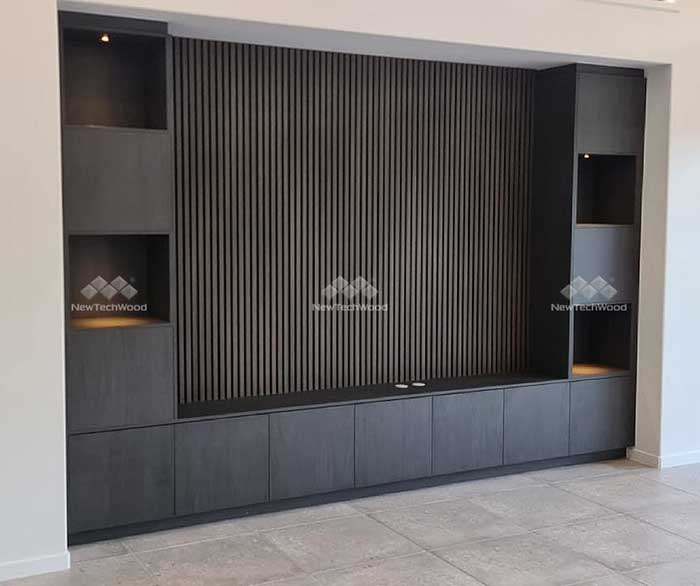
Image Source: Morrisons Cabinets, QLD
Internal cladding as a bedhead
Clad a portion or the entire wall behind your bed as an extension of your bedhead.
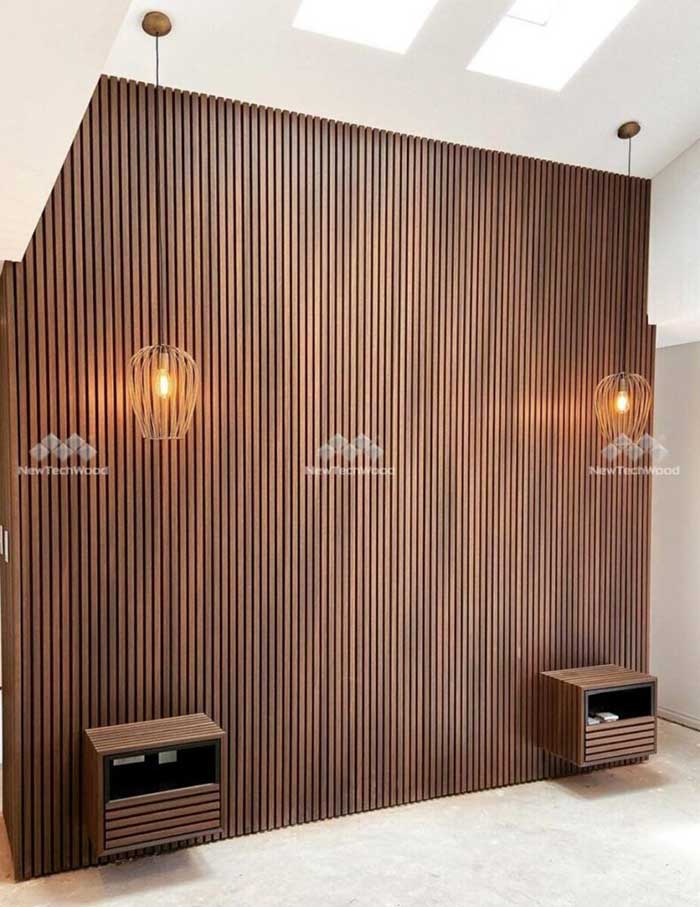
Internal timber cladding on kitchen islands or cabinets
Clad your kitchen island or the sides of your cabinetry to create a higher-end look. You can also add the same cladding to the back of open kitchen shelves, or to walls.
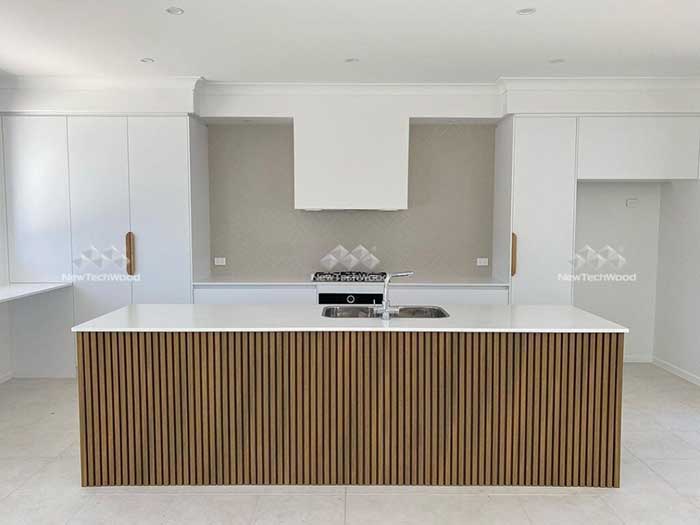
Create space illusion
Create the illusion of height or width – lay the boards horizontally to make a room appear wider, or vertically to create the illusion of height.
Draw attention to furniture
Draw attention to a special part of the room or furniture item. For example, a pair of beautiful antique leather wingback armchairs doesn’t need a cluttered wall behind them, and a plain wall is monotonous. An internal timber cladding timber feature wall can add class and texture without detracting from the chairs, or making the space too busy.
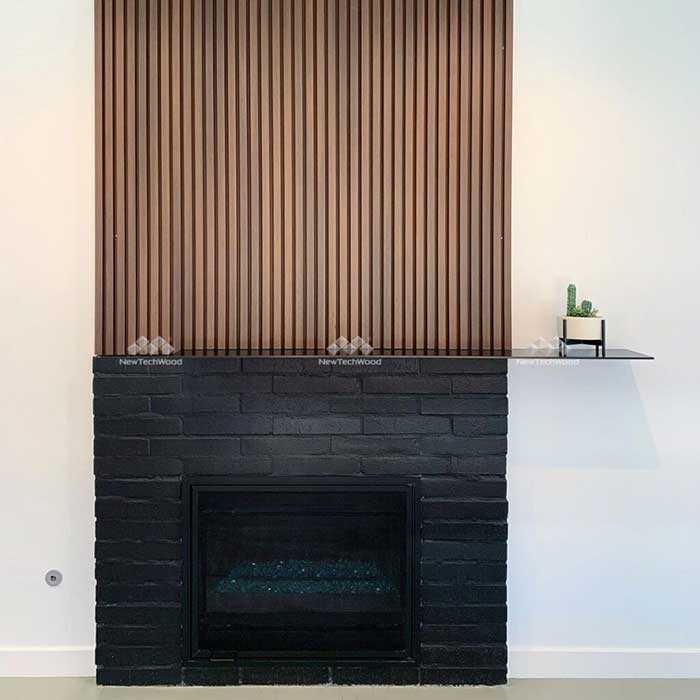
Enhance a minimalist-style room
Maybe you have a yoga or meditation room or even a living room that looks a bit dull, but you don’t want to lose the minimalist look. Wall cladding can provide the perfect solution, adding subtle detail without fuss or distraction.
Stylish concealment
Don’t waste perfectly good storage space beneath a staircase. Create a stud wall and door to hide the area. Vertically cladding both the wall and the door will make the door entrances less obvious and create a seamless look.
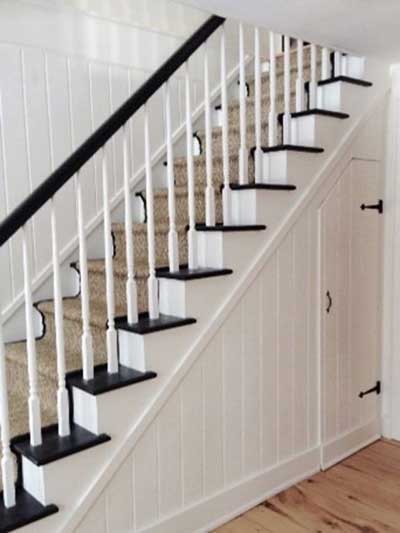
Image source: Carol Reed Interior Design, Canada
Introduce your chosen style instantly
Certain home designs are instantly identifiable through the use of timber wall cladding. For example, if you want a beach or Hamptons vibe, or you’re renovating an older Federation or Queenslander style home, cladding enables you to achieve an authentic look instantly.
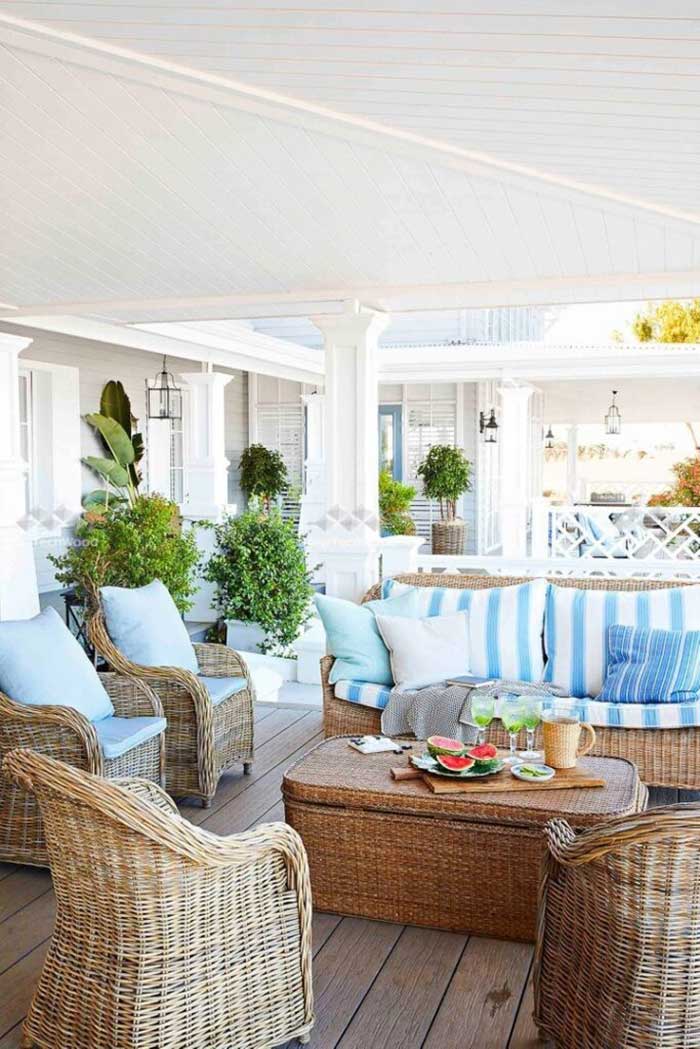
You can probably think of many other excellent style ideas for internal feature wall cladding, but if the timber look appeals to you or your clients and you would like more information on NewTechWood cladding, feel free to contact our friendly team for advice.
Top image: Source - NewTechWood Canada

